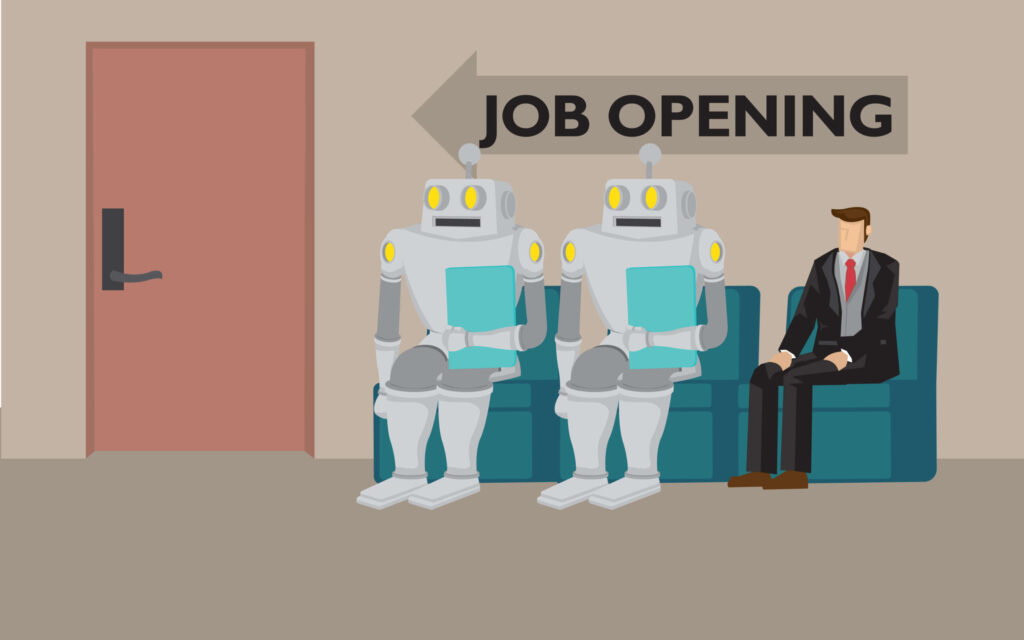I wrote last week that colleges are toast. What does that mean for the future of the post-college job market?
The number of annual American births peaked in 2007 and has been trending lower ever since. (Check out the abysmal chart below.)
In about two more years, the number of kids finishing high school is going to start trending lower too, as the babies who weren’t born in 2008 miss walking across the graduation stage in 2025.
In the end, most colleges will muddle through.
The elite schools and the best state schools won’t have a problem filling seats. They can maintain enrollment by accepting more applicants.
It’s the schools a little further down the food chain that will find themselves fighting over a dwindling pool of less-qualified applicants.
Let’s continue this mental exercise.
If the number of college students is about to drop off, then the number of would-be college graduates will also trend lower.
So … what does that mean for the job market circa 2029?
Tight Job Market Creates Perfect Opportunity for Tech
If you think the job market is tight now, we can only imagine how it’s going to look when the pool of potential new hires shrinks every year.
But remember, necessity is the mother of invention. And a dearth of entry-level workers creates a fantastic opportunity for automation and artificial intelligence (AI).
We’re already seeing this and we’ve only seen the tip of the iceberg.
Let’s think of a few examples.
How Automation and AI Remove the Human Element
I flew from Dallas to Peru last week. I bought the ticket online. I did my check-in online. I even uploaded my COVID-19 vaccine card online, which allowed me to skip the line at the airport.
Other than the TSA agents at security and the barman that mixed my negroni in the Admiral’s Club, I never had contact with a human being.
Using another example, I never carry cash. I may go months without a dollar in my wallet. All of my financial transactions involve a credit card, Automated Clearing House (ACH) or wire transfer.
That, combined with travelling a lot, means my credit card gets flagged for unusual activity at least once per month. There is no human monitoring my account, of course. Some algorithm noted spending that was out of the ordinary for my account and shut it down as a preventative measure. No worries. I can unlock the account by going through an automated process.
Again, I never had to deal with a human. A system driven by AI flagged my account, and an automated system also unlocked it.
Now, this is all pretty low-level stuff. Most of the functions I describe as being replaced by technology aren’t necessarily jobs that require a college degree.
But the potential here is so much bigger.
The Real Future of Artificial Intelligence
And this is where my friend Adam O’Dell is seeing the greatest opportunities.
Sure, it’s great that AI allows an analyst or two to do the work of a small army of clerks and telephone operators. But as AI gets more and more powerful, it’s able to do vastly more complex tasks.
Monitoring credit cards or basic airport screenings is bush league.
Now companies are pouring loads of money into the 21st century’s biggest new industry.
Dallas Mavericks owner and lauded tech investor Mark Cuban says artificial intelligence will be 10 times bigger than the internet.
Sure, we’ll see growth in areas where we’re experiencing AI’s impact in our day-to-day lives. But Adam sees the most potential for investors in a sector he calls “x.AI.”
He believes this sector is set to grow TWICE as fast as every other sector of AI over the next decade.
And his No. 1 stock within this sector has a ton of potential for its early investors.
To learn more about why Adam is so bullish on the AI stock mega trend, click here to watch his “x.AI” presentation now.
To safe profits,
Charles Sizemore
Co-Editor, Green Zone Fortunes
Charles Sizemore is the co-editor of Green Zone Fortunes and specializes in income and retirement topics. He is also a frequent guest on CNBC, Bloomberg and Fox Business.
